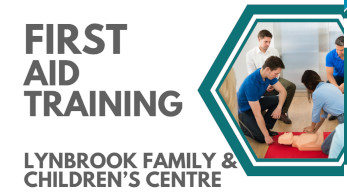Working with children is incredibly rewarding—but it also comes with responsibility. Kids are naturally curious, active, and sometimes accident-prone. That’s why childcare first aid training is not just important—it’s essential. Whether you’re an early childhood educator, nanny, or daycare provider, being able to respond confidently in an emergency is part of keeping kids safe.
Why Is First Aid Training for Childcare Workers So Important?
Children, especially toddlers, can experience a wide range of medical incidents, from choking and falls to allergic reactions and fevers. In those first few moments, having the right training could mean the difference between a quick recovery and a serious outcome.
Enrolling in a childcare first aid course gives you the skills to remain calm under pressure and take immediate, effective action. It’s all about being prepared for the unpredictable.
What’s Covered in Childcare First Aid Training?
A quality first aid course for childcare professionals is tailored to situations you’re likely to encounter when working with children. It typically includes:
-
CPR for infants, toddlers, and children
-
Managing asthma and anaphylaxis (including EpiPen use)
-
Treating wounds, burns, bites, and stings
-
Dealing with choking and seizures
-
Recognising signs of serious illness or infection
Many courses also cover incident reporting requirements, child safety laws, and basic life support tailored to young age groups.
Is Childcare First Aid Training Mandatory?
Yes—in most parts of Australia, anyone working in early learning, family daycare, or child services must complete a recognised first aid qualification for childcare. This often includes certifications such as:
-
HLTAID012 – Provide First Aid in an Education and Care Setting
-
HLTAID011 – Provide First Aid
-
HLTAID009 – Provide CPR
These courses are nationally accredited and meet regulatory standards under the National Quality Framework (NQF).
Flexible Course Options Near You
The good news? Childcare first aid courses are offered throughout Australia and can often be completed in just one day. Options include:
-
Face-to-face classes in your local area
-
Blended learning (online theory + in-person practical assessment)
-
On-site group training at childcare centres or schools
Training providers understand that educators have busy schedules, so they often run courses on weekends or during school holidays.
Who Should Take This Course?
This training is ideal for:
-
Early childhood educators and assistants
-
Family daycare operators
-
Kindergarten and preschool teachers
-
Nannies and babysitters
-
OSHC (Out of School Hours Care) workers
Even parents and guardians can benefit—because when it comes to kids, being prepared is everything.
Confidence When It Counts
Children rely on us to protect them. With the right childcare first aid training, you’ll be able to act quickly and confidently if something goes wrong. It’s not just about meeting regulations—it’s about knowing you can make a real difference in a child’s life when it matters most.
When you work with children, you wear many hats—teacher, guide, caregiver, and protector. But in moments of crisis, your most important role might be first responder. That’s why childcare first aid training is such a vital qualification for anyone working in early childhood or education care settings.
Whether it’s a tumble on the playground, a sudden allergic reaction, or a choking hazard during snack time, your ability to act quickly and correctly could save a life.
The Unique Needs of Child-Focused First Aid
Unlike general first aid, first aid training for childcare workers focuses on the needs of infants and young children. Their bodies are smaller, their conditions progress faster, and they often can’t express exactly what’s wrong.
That’s why these specialised courses teach you how to:
-
Administer CPR to infants and small children
-
Respond to asthma attacks and anaphylaxis
-
Handle burns, cuts, bites, and fractures
-
Recognise early signs of fever, infection, or dehydration
-
Comfort a child in distress while taking swift medical action
By the end of your early childhood first aid course, you’ll have practical, hands-on experience and the knowledge to handle a range of emergencies calmly and confidently.



